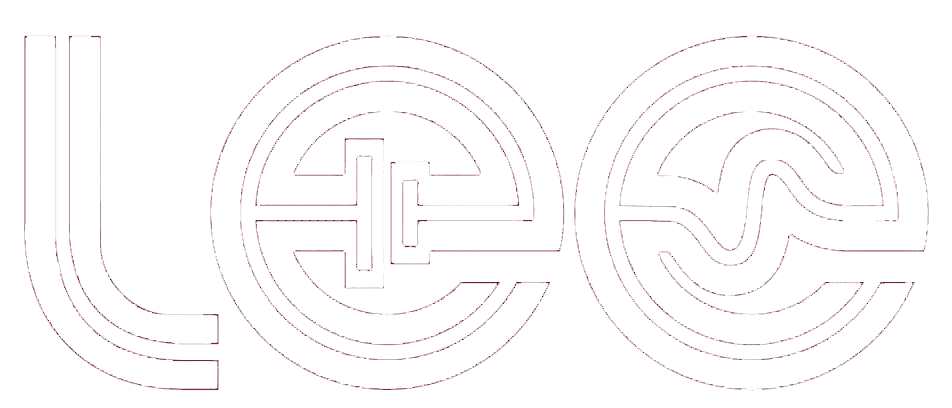DChE welcomes two new DOST Balik Scientist awardees
March 30, 2022
The department is opening its doors to two new foreign-trained long-term Balik Scientists awardees, Dr. Lawrence Limjuco (November 2021 - October 2024) and Dr. DJ Donn Matienzo (March 2022 - February 2024), of the Department of Science and Technology (DOST). The Balik Scientist Program (BSP) of the Department of Science and Technology (DOST) encourages Filipino scientists, technologists, and experts to return to the country and share their expertise to promote scientific, agro-industrial, and economic development, including the development of human capital in science, technology and innovation.
An expert in polymer engineering, material science, and energy engineering, Dr. Lawrence Limjuco will be hosted by Dr. Joey D. Ocon and co-hosted by the University of Southeastern Philippines. He completed his BS ChE degree in Ateneo de Davao University and his integrated MS and PhD in Energy Science and Technology in Myongji University, South Korea. He has had extensive experience in the brewing industry as production supervisor; in research as a principal research investigator of South Korea's National Research Foundation, as a senior science research specialist for the Mindanao Renewable Energy R&D Center and ADDU; and in the academe as a former research professor in Myongji University, a current adjunct professor in AdDU, and a senior lecturer in UPD DChE. He will work as a Supervising SRS at the DOST NICER R&D Center for Advanced Batteries to be implemented by DChE’s Laboratory of Electrochemical Engineering (LEE).
An expert in hydrogen technologies and electrochemistry, Dr. DJ Donn Matienzo will be hosted by Dr. Julie Anne D. del Rosario and co-hosted by the Technological Institute of the Philippines - Quezon City. He belongs to the Batch 2012 BS ChE alumni of the department. After graduating, he completed the Erasmus Mundus Master Course in Chemical Innovation and Regulation in the Alma Mater Studiorum, Università di Bologna, Italy, and Universitat de Barcelona, Spain. He then completed his PhD in Chemistry and Chemical Technology in the University of Chemistry and Technology in Prague, Czech Republic, accomplishing two published (and two draft) journal articles as first author. He has had nearly three years of engineering experience in oil refinery and more than four years of R&D experience leading to a strong background in innovative hydrogen and clean fuels technologies at Industrie de Nora and startup training at Antler Amsterdam. He will work as a Research Fellow V of the CHED-PCARI CIPHER Project to be implemented by LEE as well.
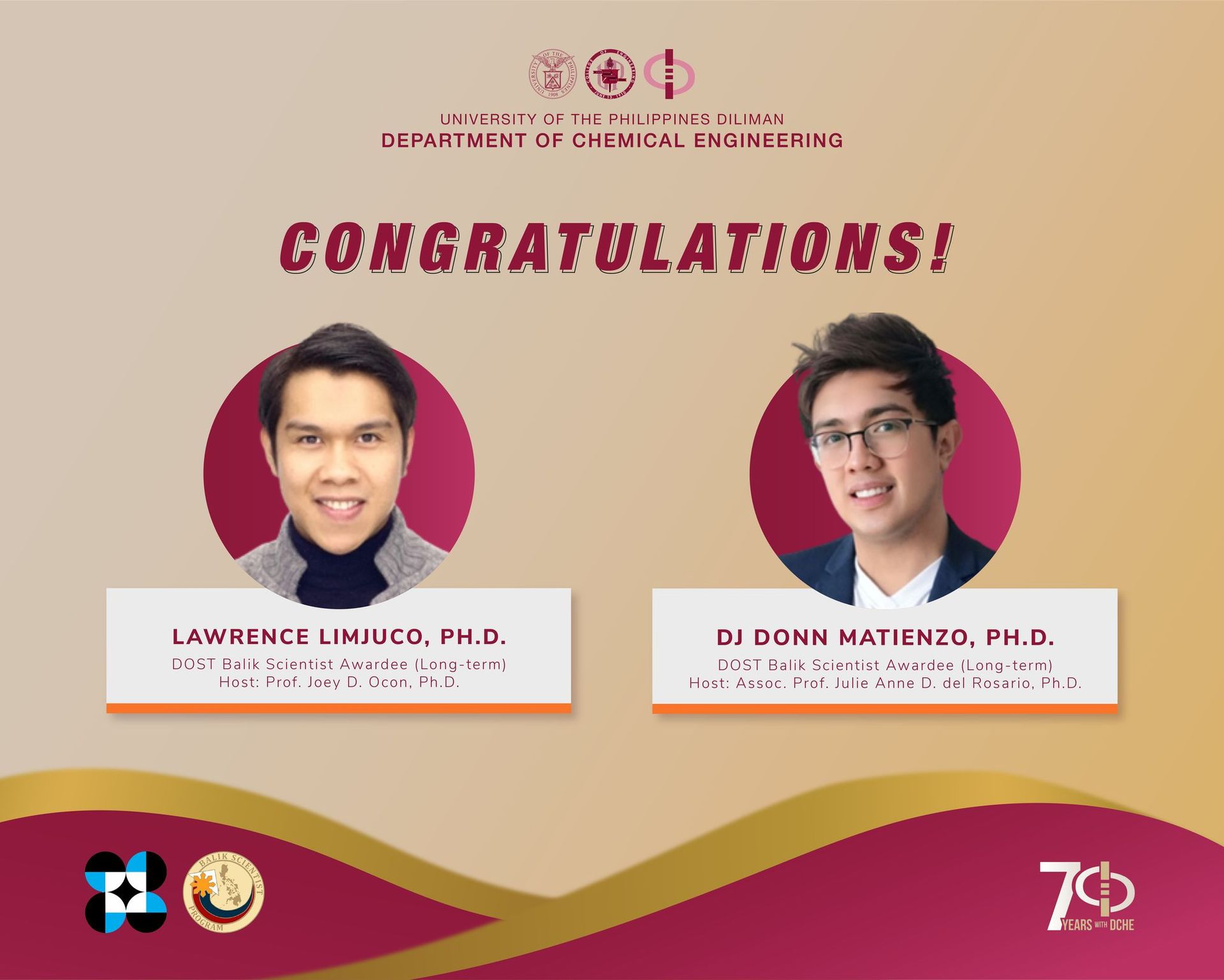
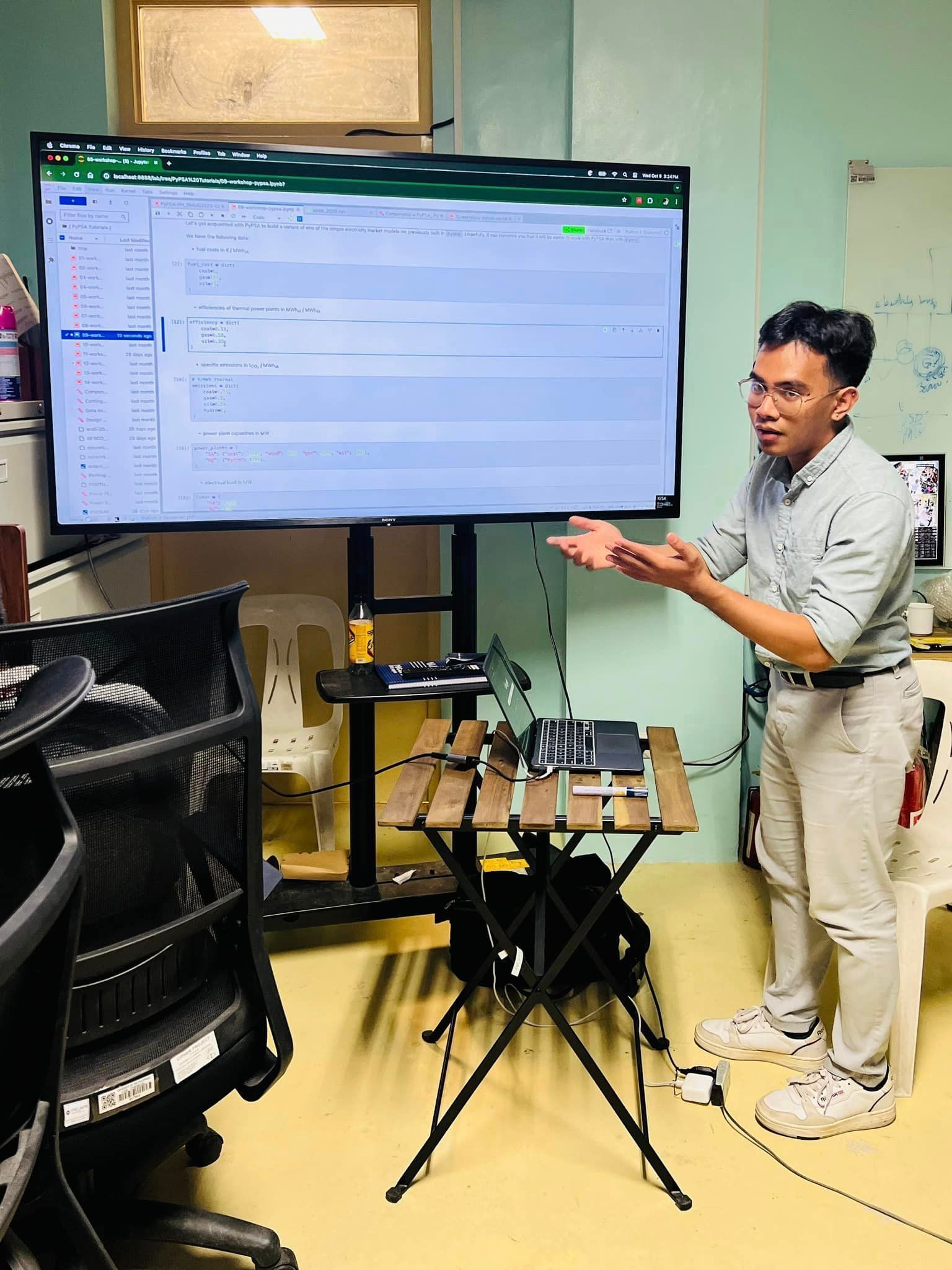
LEE research staff and graduate students participated in an in-house training and workshop on the Python for Power Systems Analysis (PyPSA) toolbox on October 9 and 23, 2024 . The sessions were led by Arizeo Salac (SRS 1, ElectriPHI), who returned from a six-month research sandwich program at the Reiner Lemoine Institute in Berlin, Germany , where he focused on data-driven decision-making and energy systems modeling. The training included a detailed discussion on energy systems modeling, with key topics such as data sources and the representation of energy systems using both conventional and renewable technologies. Participants received hands-on assistance with the software setup and installation, followed by simulation activities that showcased PyPSA’s capabilities in energy and power systems analysis. Mr. Salac also presented his baseline model of the Philippine energy system, which can be utilized for energy transition scenario planning. The event aimed to enhance participants' proficiency with open-source modeling tools, share best practices in modeling, and support their research in energy systems. Article by: Sophia Lunor
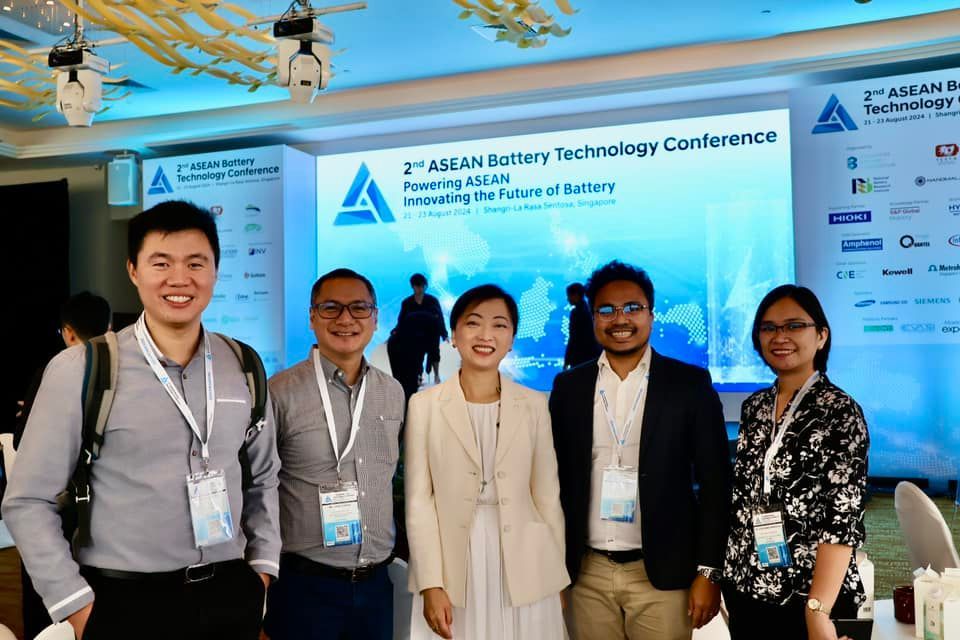
Prof. Joey D. Ocon, Dr. Julie Anne D.R. Paraggua, Dr. Lawrence Limjuco, and Giancarlo Sanglay were among the Filipino delegates at the 2nd ASEAN Battery Technology Conference , held from August 21 to 23, 2024 , at the Shangri-La Rasa Sentosa in Singapore. Themed "Powering ASEAN: Innovating the Future of Battery," the event was co-organized by key ASEAN associations from Singapore, Thailand, Indonesia, Malaysia, and the Philippines. They were accompanied by LEE member and graduate student, Giancarlo Sanglay and NextGen Project Chief Technical Specialist, Dr. Lawrence Limjuco, of the Advanced Batteries Center. The conference aimed to foster connections among researchers, engineers, and industry stakeholders within the battery and electric vehicle (EV) sectors. It provided a platform for knowledge exchange, technical discussions, and potential collaborations. Key topics included the development of the Battery and EV Roadmap for Southeast Asia, as well as government policies and regulations surrounding battery and energy storage systems (ESS) applications. Industry leaders and academic experts also addressed technological advancements in battery materials, financial support for innovations, and strategies for managing the end-of-life value chain of batteries. Prof. Ocon, who also serves as Co-Founder of Nascent Batteries, played an active role in the event by moderating a panel discussion on advancing ESS technologies in Asia. The panel featured representatives from prominent organizations, including EDP Renewables APAC, Green Tenaga Pte Ltd, and the Electricity Generating Authority of Thailand. This collaborative event underscored the region's commitment to advancing sustainable energy solutions and highlighted the critical role of ASEAN countries in driving innovation within the battery and EV industries. Article by: Lora Monique Sapanta
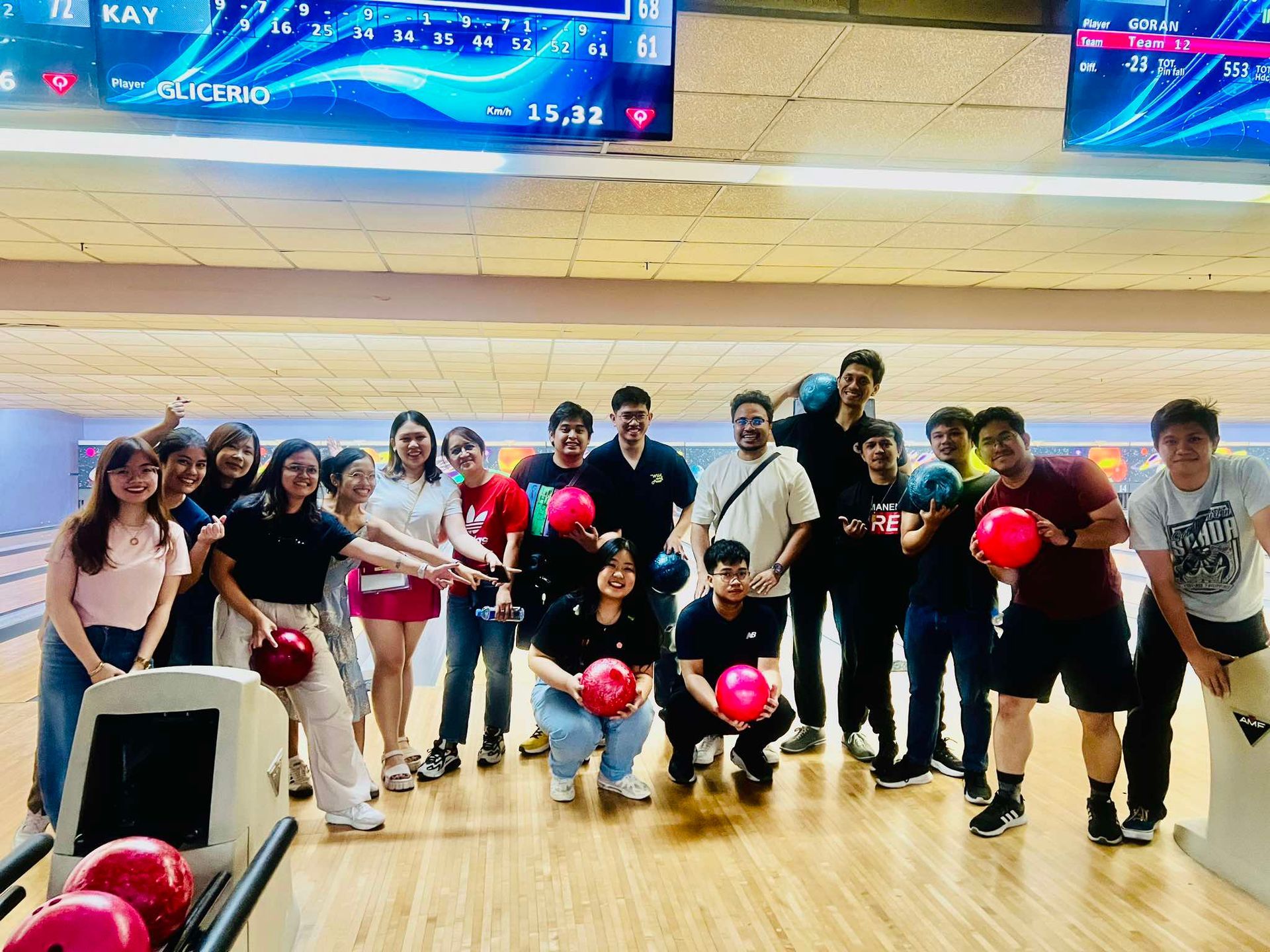
The Laboratory of Electrochemical Engineering (LEE) held a despedida party to bid farewell to two of its active members — Ms. Rosela Lazaro and Asst. Prof. Michael Castro — as they embark on a new chapter of their academic journey. The LEE members, along with their laboratory head, Prof. Joey D. Ocon, celebrated through a friendly competition at the Ever Gotesco Bowling Alley, Commonwealth Avenue last August 19, 2024. This also fostered camaraderie and strengthened the bond and friendship between the lab members. Ms. Lazaro will be studying MS in Environmental Science and Engineering at Gwangju Institute of Science and Technology, South Korea. Meanwhile, Asst. Prof. Castro will be pursuing a doctorate degree in Nuclear Engineering and Management at the University of Tokyo, Japan. He will be returning to UP Diliman to tend to his duties at the Department of Chemical Engineering. Indeed, ‘goodbyes’ are not the end. It marks a beginning of a new ‘hello’, a step closer to making dreams come true. To Sir Michael, ganbatte! To Sela, hwaiting! We are all rooting for you both! Article by: Lora Monique Sapanta


